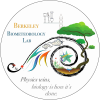Field Notes
<--2023-09-12 12:05:00 | 2023-10-11 12:15:00-->Other sites visited today: Hill Slough | Bouldin Corn | Bouldin Alfalfa | West Pond | East End | Gilbert Tract
Phenocam link: Searching...
Mayberry: 2023-09-28 15:35:00 (DOY 271)
Author: Daphne Szutu
Others: Robert
Summary: Regular data collection/cleaning, shadowband not working--needs more work, measured porewater conductivity, removed one sipper to move to GT, mosquitoes
| 2023-09-28 Mayberry Robert and I arrived at 15:35 PDT. It was sunny and warm with a little breeze. More mosquitoes and only a handful of wasps here compared to East End. There was some bright green swirls in the still waters right around the tower, maybe pollen. The staff gauge read 39cm. The smaller solar panel array was sagging. One of its back legs had sunk into a collapsed hole in the soil while the other back leg was still on solid ground. I fixed it temporarily by laying a small plank on the ground and propping up both legs on the plank. It could be secured better another time. Robert cleaned flux and rad sensors. I downloaded met, cam, and USB GHG data. The reservoir was ½ full; we refilled it. I brought some of the smallest diameter split loom for the wash tubing, but it was too small. I’ll bring a bigger size next time to protect the wash tubing from further chew marks. I checked the 7700 heater settings and they were already set to winter hours, 18:00-06:00. The heaters prevent condensation from forming, so I extend its hours in the winter given the higher humidity and cooler temperatures. Guess I never changed this one back to summer hours. The rotating shadowband was not spinning. Robert changed out its motor, but it stopped working a few minutes later while we were taking porewater sipper samples. I think the replacement motor was probably bad. We didn’t have any more replacement motors, so we left things as is and I’ll put in a new motor next time. The 7500 read: 410ppm CO2, 670 mmol/m3 H2O, 28.2C, 100.4kPa, 100SS – 100 after cleaning The 7700 read: 2.0ppm CH4, 45RSSI – 70 after cleaning I took porewater sipper samples and measured them using our handheld conductivity sensor. I used the larger 150cc syringe. The conductivity probe was rinsed with DI between each sample. I took one draw of sample, which we used to pre-rinse the syringe and the probe. I discarded that sample and drew a fresh sample, which we then measured. We skipped the 3-way valve and just used a soft tubing to connect the syringe and sipper tubing. The sampling doesn’t take too long now that we simplified our protocol and have more muscle memory. Still spending enough time in one position to get mosquito bites though. Depth, Temperature-compensated conductivity, Temperature Surface, 2.44mS, 24.3C Green, 10.46mS, 24.0C Yellow, 18.55mS, 22.2C Red, 14.51mS, 22.2C Bare, 14.37mS, 21.4C Blue, no sample able to be collected I pulled out the blue-labeled porewater sipper since we haven’t been able to get water from it for a while. The holes in the sipper extended from 20-25cm below the ground surface. Hopefully that matches with Kyle’s notes from installation. The holes were definitely plugged with sediment, so it makes sense we weren’t able to pull any water out of it. Robert used the spray bottle to rinse out all of the gunk from the sipper. We will install it at GT for porewater samples there. We left at 16:35 PDT. |
0 photos found
11 sets found
7 MB_flux graphs found
No data found for MB_met.
28 MB_tule graphs found
Can't check MBWPEESWGT_mixed
1 MB_cam graphs found
Can't check MBEEWPSWEPGT_cam
Can't check SIMBTWEE_met
1 MB_minidot graphs found
Can't check MBSWEEWPBCBA
1 MB_processed graphs found
Can't check MB_fd
1 MB_fd graphs found

